Reverse Mentoring: Learning Data From Junior Officers
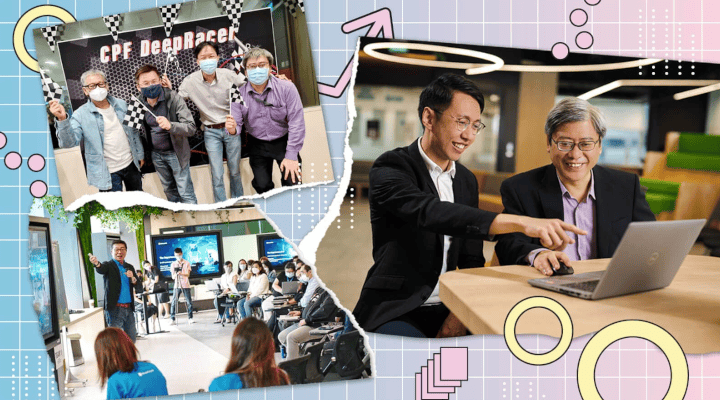
From song recommendations on music streaming services to finding the most efficient routes and price points on ride-hailing platforms, data science has had a huge impact on our lives.
For several years, Mr Winston Yean has diligently used the Learn app and YouTube videos to learn about data science and pick up data skills he can use at work.
“But nothing quite beats learning by doing,” says the Group Director (Corporate Strategy & Risk), Policy & Corporate Development, at the CPFB.
Since 2021, he has been learning from junior colleagues with specialised skills in programming languages (such as Python and R) and machine learning as part of a reverse mentorship arrangement. For instance, Winston was partnered with junior officer, Tan Sze Gee, who is an analyst in CPFB’s Data Science Accelerator Department. Sze Gee also has experience in data wrangling and data analysis.
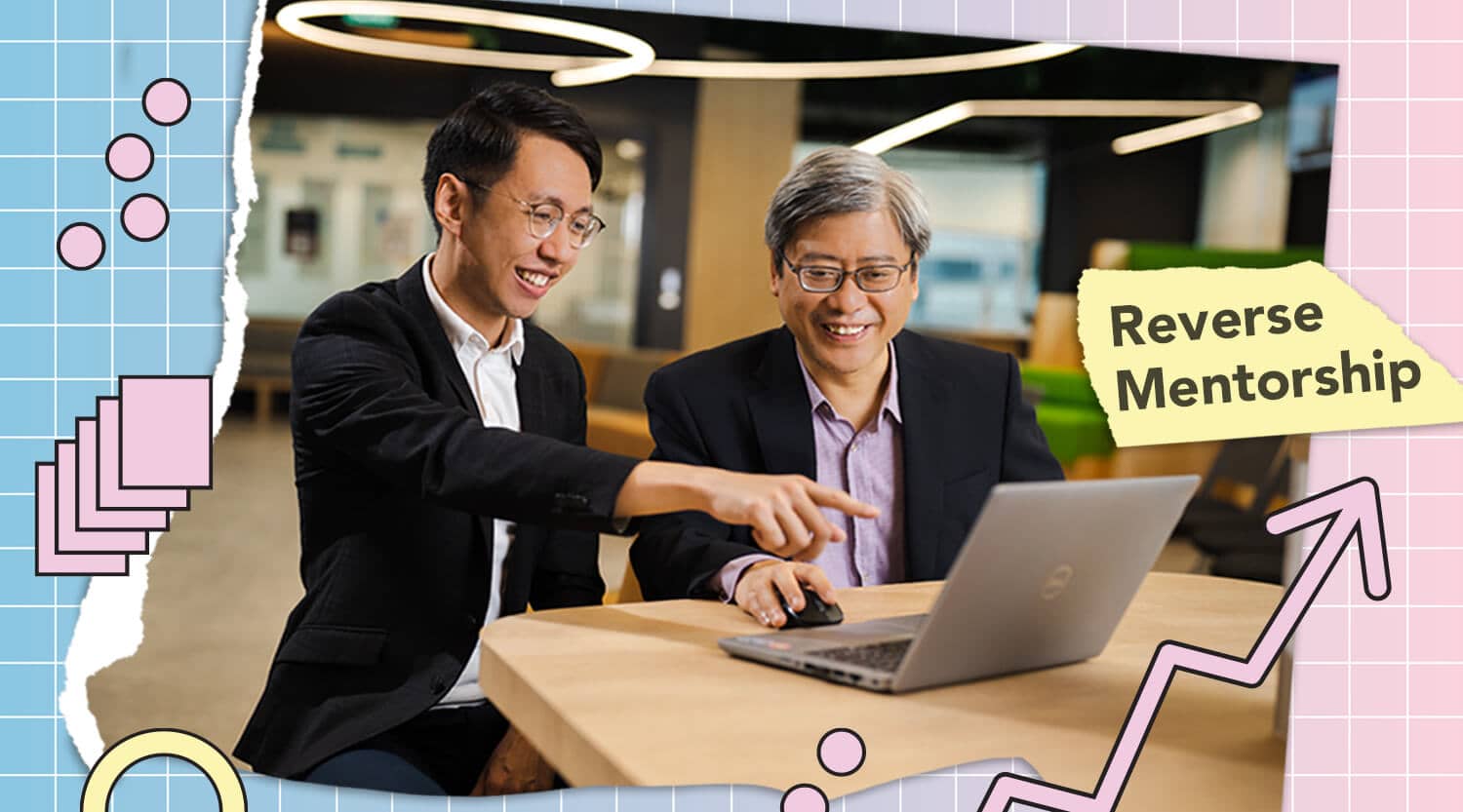
The reverse mentorship ran throughout two events organised by the CPFB to provide its senior leadership with hands-on data skills learning.
One was a month-long Amazon Web Services DeepRacer competition in November 2021 that required Python coding to train small-scale self-driving race cars.
The second event, in August 2022, was an AutoML hackathon (a collaboration with Microsoft) to explore a business problem using a large dataset.
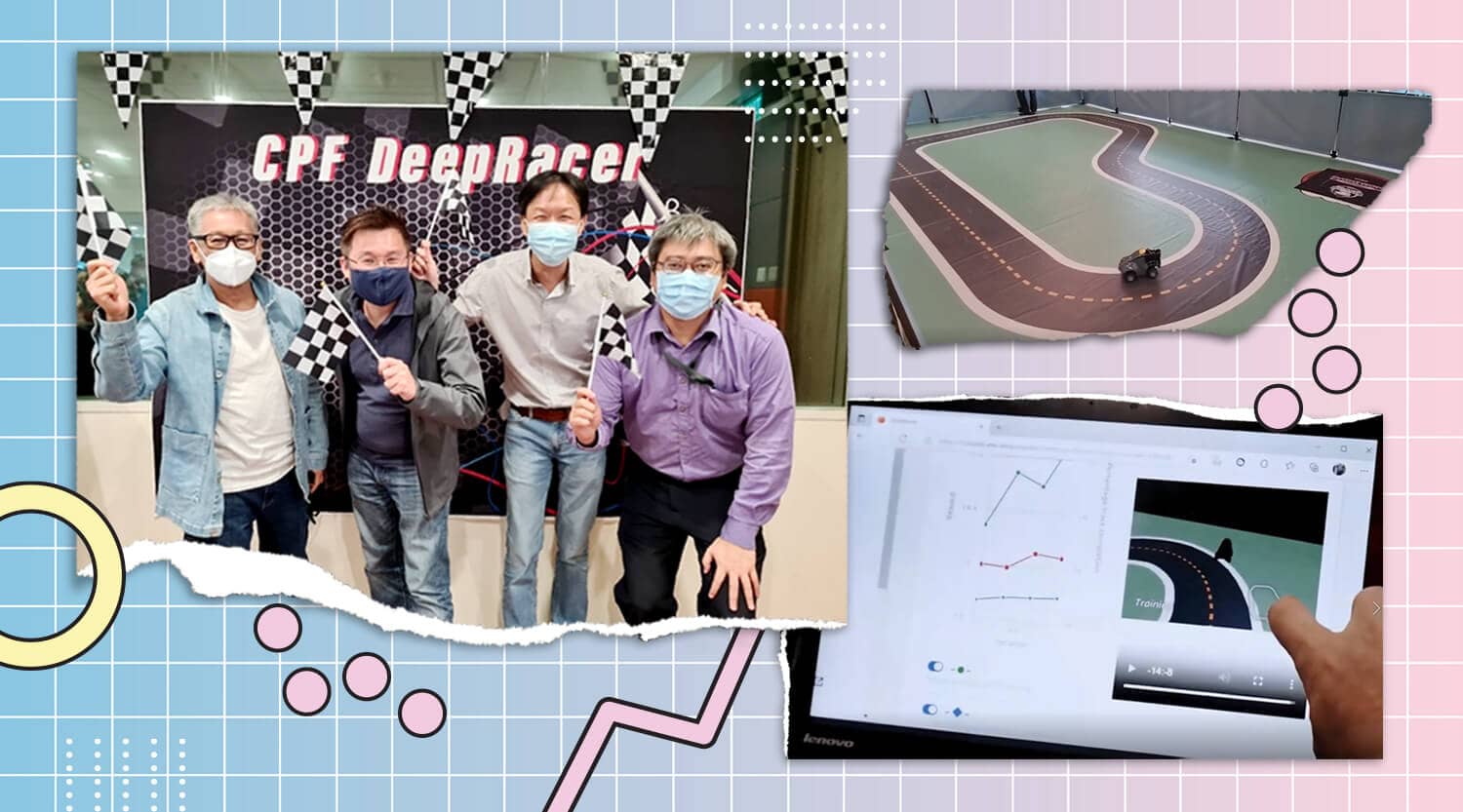
Learning From One Another
Junior officers were assigned as facilitators to guide their respective senior leaders on programming in Python and machine learning concepts.
For Sze Gee, being a mentor for these two events was an opportunity to learn new tools and skills beyond his daily job scope. These included reinforcement learning (a machine learning technique to train programmes or computers for desired outcomes) and using Microsoft’s Azure Machine Learning Studio.
He says: “Data science spans many different areas and is constantly evolving. To mentor the senior leader, I had to familiarise myself with the tools and concepts used.”
This constant learning of new techniques and technologies from various resources, he says, is the “essence” of data science.
Beyond picking up technical skills, Sze Gee’s role was to bridge the gap between the senior leader’s general awareness of certain tools and their capabilities, and having the practical experience of working with those tools.
He had to understand the senior leader’s expectations to help conceptualise how machine learning can “drive decisions at the strategic level”.
For Winston, reverse mentoring is an innovative and effective way to become a “data-smart” organisation.
He says: “By investing time and effort, senior management leads by example. This sends a powerful signal to the organisation that learning and applying data skills is worthwhile and important.”
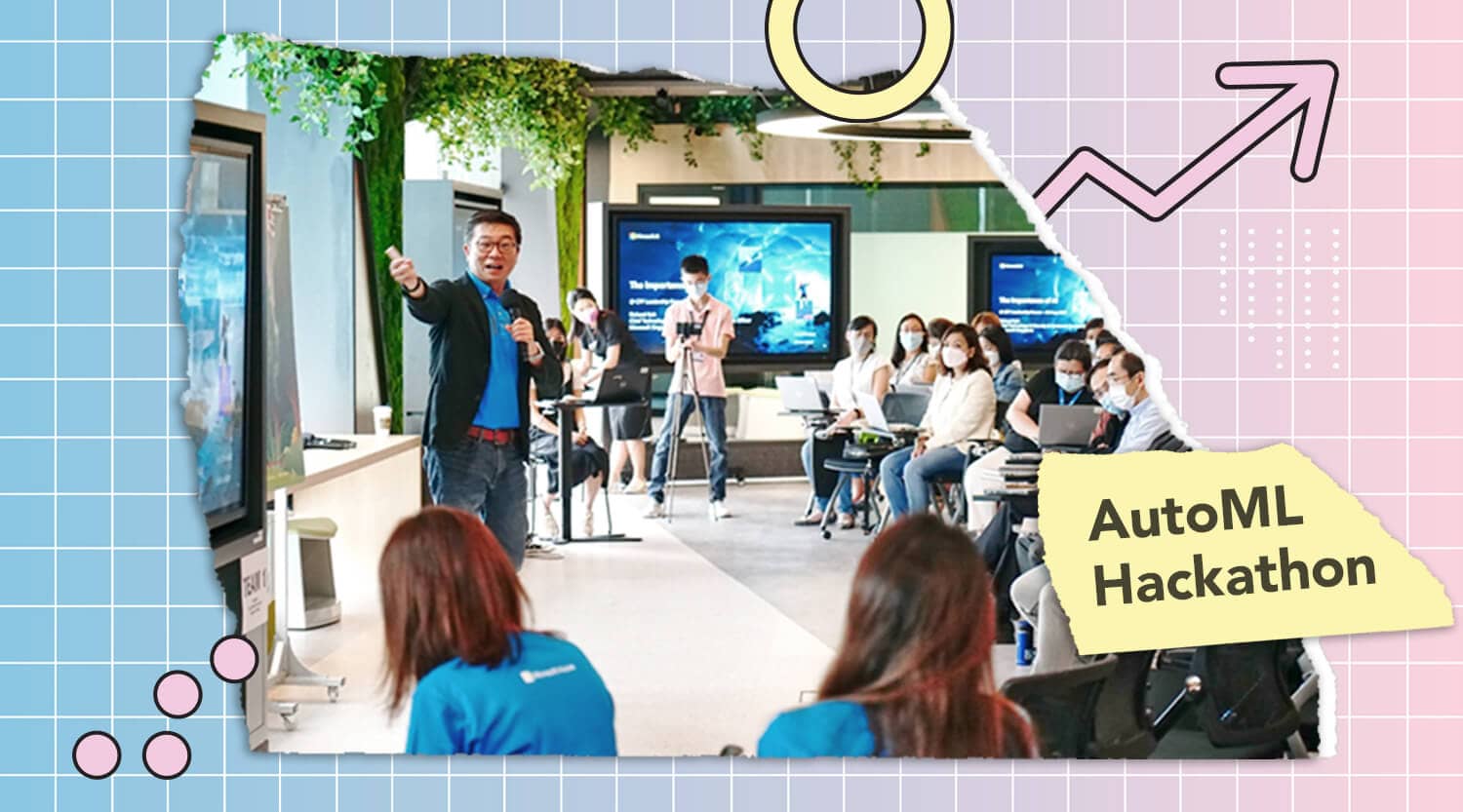
Building Data Capabilities
Over the past few years, the CPFB has grown a core group of data enthusiasts and advanced users who work hard to grow the agency’s data science capabilities.
This group of “power users” has become the building block for CPFB’s data transformation journey.
At regular Data Science Community of Practice sessions, for example, data enthusiasts gather and discuss novel data science techniques. They show how their skills and knowledge can be applied to current projects.
There are also agency-wide programmes to spur learning. The Data Champions (DC) Bootcamp X, a seven-month course, equips participants with advanced analytics and machine learning skills.
The aim is to ensure that every CPFB department has “power users” who can take data projects further.
Senior Deputy Director Francis Wan from the Risk Management Department, who has been at the CPFB for 20 years, previously only used Microsoft Excel functions like pivot tables to analyse data.
After attending the DC Bootcamp and dabbling in data visualisation application Tableau, he is continuing to learn Python for upcoming work projects.
Francis now makes use of data analytics to “transform raw data into insightful information for problem-solving and decision-making”. He gained an in-depth understanding of the whole data lifecycle – such as practising good data governance by seeking permission from data owners; processing and storing data; as well as doing the analysis and interpretation of data.
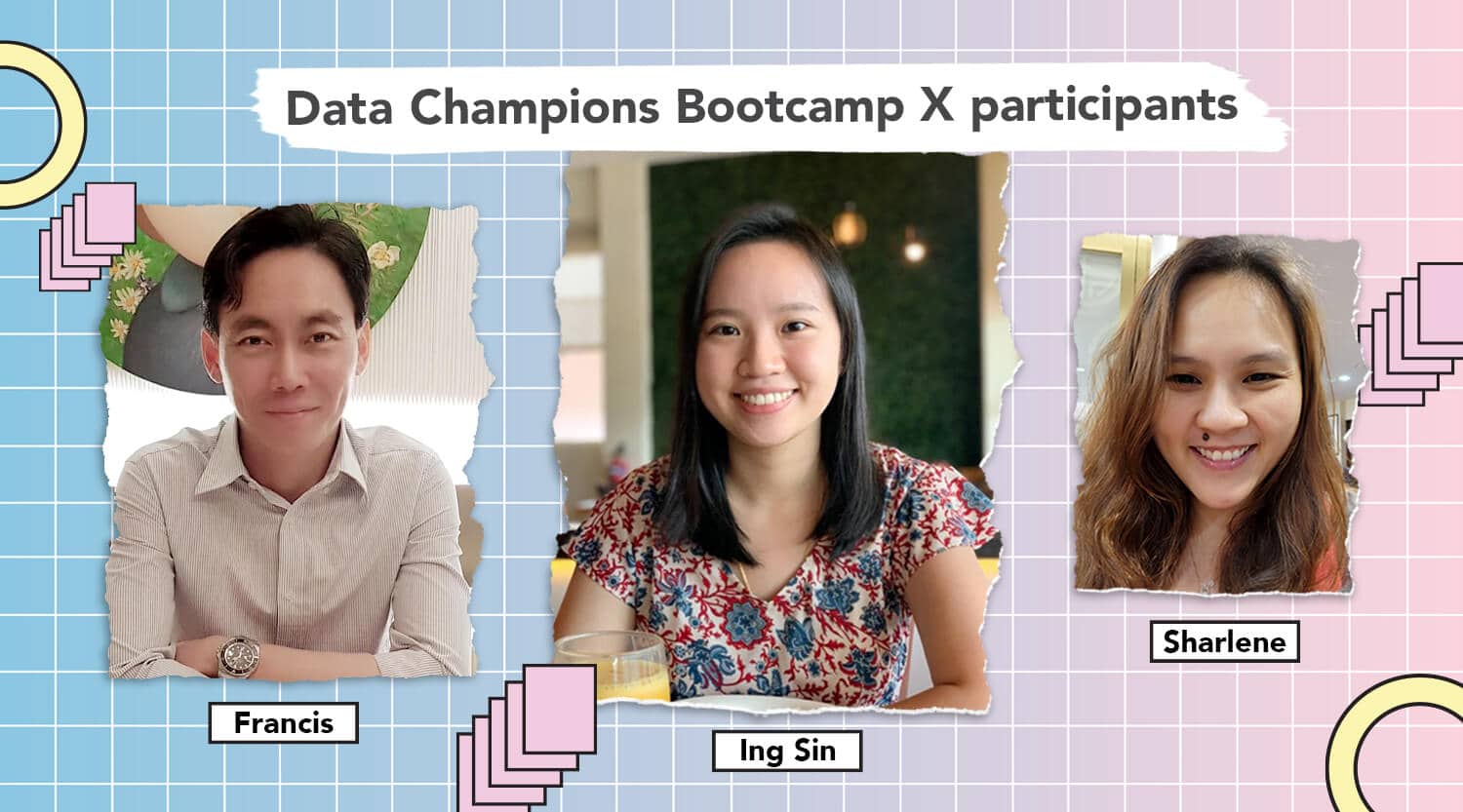
Applying Skills Learnt to Projects
Another DC Bootcamp X participant, Ms Sharlene Lee, used to find data very daunting, especially when faced with enormous amounts of it – even as she understood the benefits of tapping data for work.
The Assistant Director in Services (Retirement Income) says: “Data can help us identify certain trends or areas to zoom into for further study, to improve our daily operations.”
To make data more accessible, the CPFB has a Unified Data Platform that staff can use to initiate and execute data projects at a faster pace. This self-service platform – built on the commercial cloud – allows officers to access data science tools and analyse data from more than 200 sources.
CPFB’s data learning initiatives have been useful for more tech-savvy officers too.
IT Governance & Security consultant, Ms Bak Ing Sin, has done data modelling and created scripts for data cleaning, data pre-processing and machine learning models. She says the DC Bootcamp X and its friendly instructors, detailed tutorials and comprehensive materials have sharpened her data analytics skills.
“While the technical data analysis skills can be challenging, it is not impossible with the right plan of action.”
As many courses are available online for foundational skills, she suggests starting with a structured programme to get a broad overview of data science. Hands-on exercises for analytical tools will deepen that understanding.
Having a data-related support group also helps, the Bootcamp participants say.
At CPFB, staff work together across departments to discuss the context of a problem statement so they can better identify the datasets needed. Ing Sin highlights how the agency analysed data of CPF members’ past behaviour to customise messages to encourage top-ups to retirement savings accounts.
For her role within the CPFB Cybersecurity and Technology group, she adds: “Data science is extremely useful for identifying threats. Advanced machine learning models can be used to detect anomalies and protect the key infrastructure in our Board.”
Being a Better Leader
For Winston, getting tangible results from using these “previously-esoteric technologies” has inspired him to think about how they can be applied to actual business challenges in his area of work and more broadly in the organisation.
As a senior leader, he feels he is now able to promote the knowledge and methodologies to his team with more credibility, having experienced it himself.
Winston says: “When my staff come to me with their own projects and ideas, I know that I will be able to not just endorse it at a high level, but also actively engage and discuss solutions with them as a fellow explorer.”
A Second Race
The DeepRacer competition organised for senior leaders was so well received that a second one was held for all CPFB staff in July 2022.
35 teams of CPF officers participated, with a total of 165 officers across 43 departments. Participants received training and resources to learn Python programming and could delve deeper into the artificial intelligence and machine learning space.
Sze Gee, who was also part of the event organising team, says: “The final physical race was very exciting, and officers were eager to see how their car models would perform. The results were encouraging!”

To get more stories like this, subscribe to the Challenge Telegram channel.
- POSTED ON
Feb 6, 2023
- TEXT BY
Siti Maziah Masramli
- PHOTOS BY
Courtesy of the CPFB









